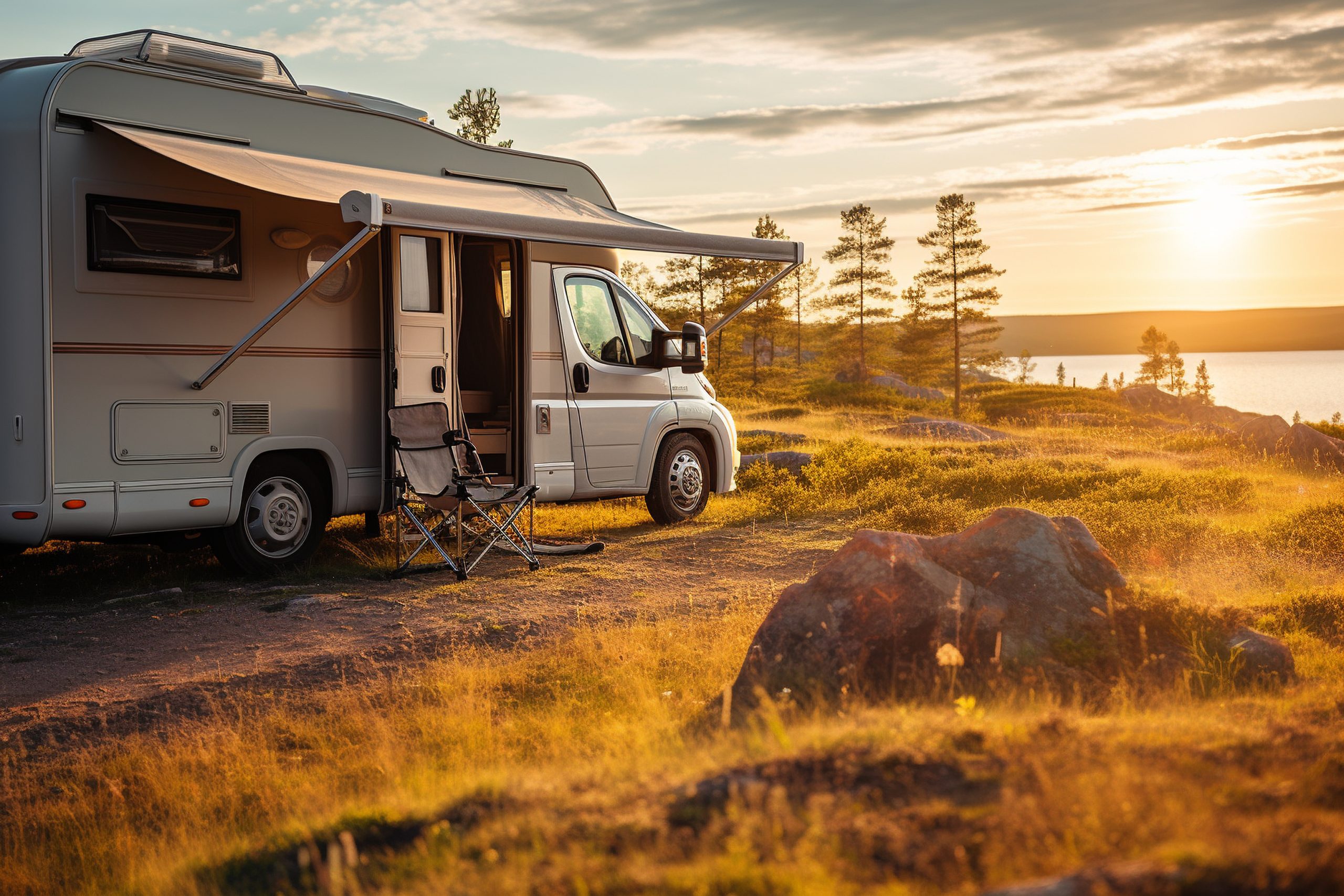At Happy Camper, we believe that loving the great outdoors comes with a responsibility to protect it. This April, in celebration of Earth Day, we’re kicking off our Earth Day Blog Series—a collection of helpful, inspiring articles designed to make camping more sustainable for everyone who hits the open road. Whether you’re an RV owner, a tent camper, or something in between, we all have a role to play in taking care of our planet.
This first post is all about the basics. Sustainable camping doesn’t have to mean sacrificing comfort or fun—it just means making smart, eco-friendly choices that leave no trace behind. Here are six simple ways to get started:
6 Ways to Practice Sustainable Camping
Camping is all about connecting with nature—and protecting it in the process. Practicing sustainable camping means being mindful of your impact, from how you pack to how you clean up. By making small, eco-conscious choices, you can help preserve the beauty of the outdoors for future adventures. Here are 6 ways to practice sustainable camping on your next trip.
1. Pack Reusables, Not Disposables
One of the easiest ways to reduce waste while camping is to swap out single-use items for reusable ones. Bring along washable dishes, stainless steel utensils, refillable water bottles, and cloth napkins. Not only does this cut down on trash at your campsite, but it also lightens your environmental footprint overall. Bonus: it saves you money in the long run.
2. Stick to the Trails and Campsites
Nature was not meant to be trampled. Always set up camp in designated areas and use marked trails when hiking or exploring. Going off the path can lead to soil erosion, damaged plant life, and harm to fragile ecosystems. Stay on track—literally—and help preserve the beauty of our wild places.
3. Use Eco-Friendly Products
From dish soap to sunscreen, the products you use while camping can have a major impact on the environment. Choose biodegradable soaps, reef-safe sunscreens, and chemical-free bug repellents. These choices help keep nearby lakes, rivers, and soil clean and healthy.
4. Conserve Water and Power
Just because you’re hooked up doesn’t mean you have to use it all. Practice mindful conservation by taking shorter showers, turning off lights when not needed, and using solar-powered lights or chargers when possible. Little changes can go a long way toward reducing your resource use.
5. Respect Wildlife
You’re in their home—act like a polite guest. Never feed wild animals, always store food securely, and keep a respectful distance. Human food can make animals sick or aggressive, and too much contact can disrupt natural behaviors. Admire wildlife from afar and leave them undisturbed.
6. Leave It Better Than You Found It
The golden rule of sustainable camping? Leave no trace. In fact, leave it better if you can. Pick up any trash you find—even if it’s not yours—and pack out everything you brought in. A clean campsite helps protect wildlife and ensures the next camper enjoys the same natural beauty you did.
Sustainable Camping: The Final Word
Sustainable camping is about being a good steward of the places we love. As campers, RVers, and lovers of the open road, it’s up to us to lead by example. At Happy Camper, we’re proud to support efforts that keep our parks, forests, and campgrounds clean and beautiful—not just on Earth Day, but every day.
This blog is the first in our Earth Day Series, where we’ll explore more ways to camp responsibly, from energy-efficient RV upgrades to green campground recommendations. Stay tuned for more eco-friendly inspiration all month long.
And while you’re planning your next sustainable camping trip, don’t forget to protect your RV with insurance you can trust. Contact Happy Camper for all your RV insurance needs—we’ll keep you covered so you can focus on the journey.


